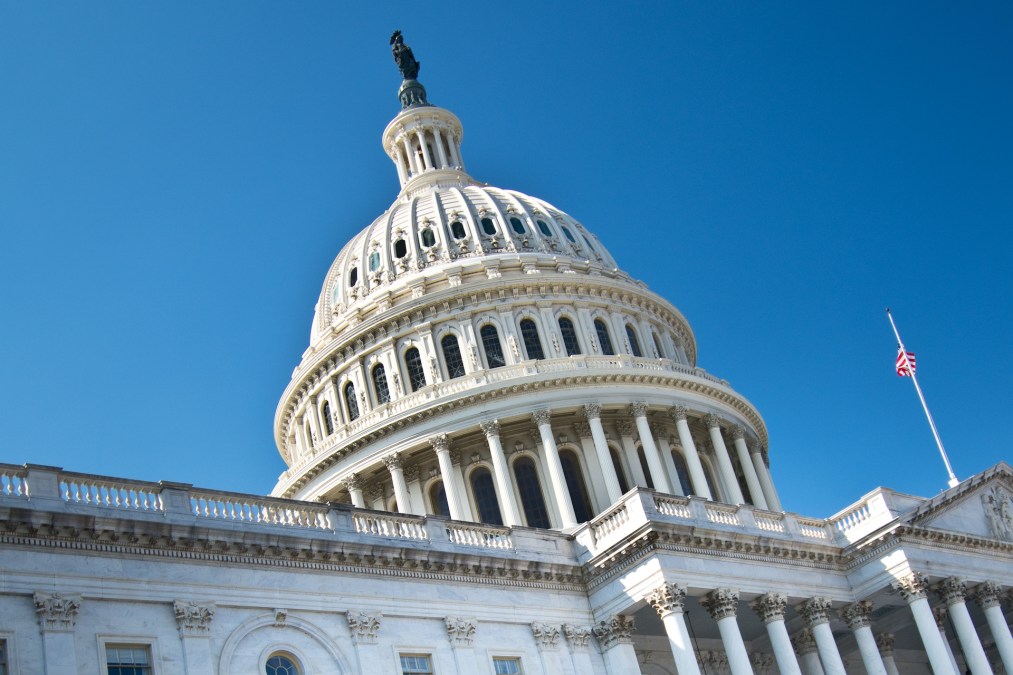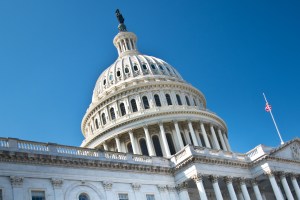Congressional staff lay out possible AI agenda for next term

The incoming Congress should continue to advance an aggressive artificial intelligence legislative agenda that takes into account transparency and accountability, according to staff within the AI caucuses.
Some of the biggest ticket items the 117th Congress may take on include policy regarding setting transparency standards, furthering industry trust and increasing the AI talent pool.
That agenda can build off accomplishments from the current Congress, staffers said at a Wilson Center panel Thursday — the caucus is posed to have six proposals signed into law by the end of the year, such as the AI Initiative Act and the National AI Research Resource Task Force Act, which are included in the 2021 National Defense Authorization Act.
“We’ll have cleared the decks, so we’re all ears on what we should do next. We’re in the market for new ideas,” said Sam Mulopulos, a legislative aide for Sen. Rob Portman, R-Ohio. Mulopulos manages the senator’s work as chairman of the AI Caucus, which was formed last year.
AI policy is unique in that it’s one of the few non-partisan issues Congress considers. There aren’t widely adopted, clear-cut positions from either party.
“This is really the last big issue that isn’t a partisan issue and has not totally been destroyed by partisanship,” Mulopulos said. “We can actually govern quite efficiently on this issue.”
The panelists emphasized that a priority of the next Congress needs to be allocating enough money so agencies can be successful in their AI pursuits.
“We put all these pieces into law. The agencies are going to need the resources to make this happen,” said Dahlia Sokolov, the staff director for the Subcommittee on Research and Technology within the Committee on Science, Space, and Technology. She said this includes increasing funding to the National Institute of Standards and Technology (NIST), the most “underappreciated, underfunded” agency — going from $40 million to $80 million could “make all the difference.”
For example, NIST could do tech evaluations for racial bias in the use of AI systems to make housing-related decisions, Mulopulos said.
Congress also needs to work towards AI accountability and explainability, according to Sean Duggan, the military legislative assistant to Sen. Martin Heinrich, D-N.M. The 2020 NDAA included the first definition of explainable AI.
“AI will only be as useful and accepted as people feel comfortable that it is a part of our everyday lives,” Duggan said. “If you can’t explain that to someone on the street, a lot of its usage and future could be limited. That’s one big focus of the senator and the caucus next year: How do we increase familiarity, trustworthiness and accountability with AI?”
The executive branch is also focused on the theme of increasing agencies’ use of ethical and accountable AI. President Trump signed an executive order Thursday, giving agencies guidance on how to use trustworthy artificial intelligence technologies in a way that protects privacy and civil rights.
Mulopulos said that accountability also extends to industry partners, who can offer “game-changing” critiques and important guideposts for AI work and proposals.
“There’s so much expertise in a lot of industries about how these things work and what works and what doesn’t work, and we really want to leverage that,” he said. “More feedback is always better.”
The current Congress ends on the morning of Jan. 3, and the new session begins at noon the same day.





